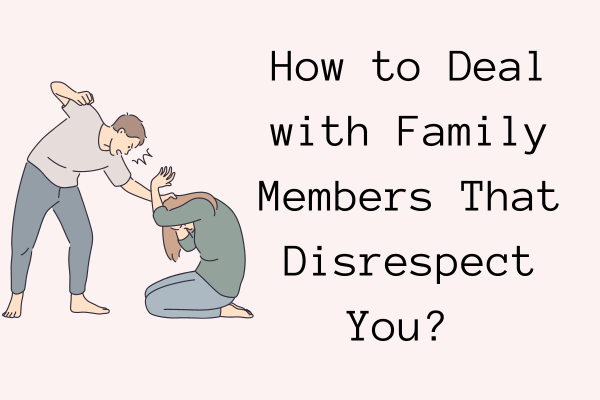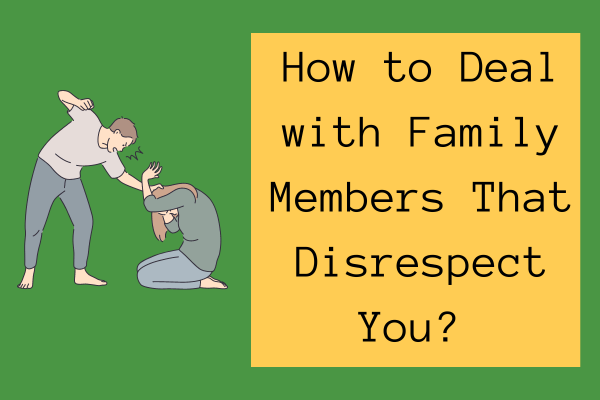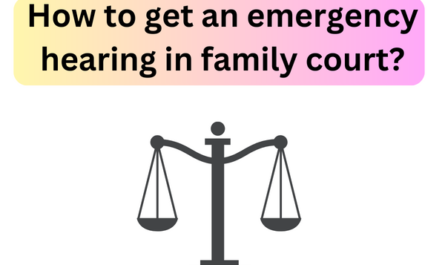How to Deal with Family Members That Disrespect You?
Dealing with family members who disrespect you can be a challenging and emotionally draining experience. Family dynamics are complex, and conflicts within the family unit can have a significant impact on one’s emotional well-being. In this article, we will explore effective strategies for addressing and managing situations where family members are disrespectful.
So How to Deal with Family Members That Disrespect You?
Dealing with family members who disrespect you requires a combination of patience, communication, and self-respect. By understanding the root causes, setting boundaries, responding constructively, seeking resolution, and, if necessary, seeking outside help, you can navigate these challenging dynamics while preserving your well-being and maintaining healthier relationships.
Understanding the Root Causes
Lack of Communication
Clear communication is essential in any relationship, and family dynamics are no exception. Misunderstandings and unexpressed feelings can lead to disrespectful behavior. Addressing issues through open and honest communication can help bridge the gap and foster understanding.
Unresolved Resentment
Past conflicts and unresolved issues can contribute to disrespectful behavior. Resentment may build up over time, causing family members to act out in hurtful ways. It’s important to identify and address these underlying issues to promote healthier interactions.
Setting Boundaries
Define Your Limits
Establishing personal boundaries is crucial when dealing with disrespect. Clearly define what behavior is unacceptable to you and communicate those boundaries to your family members. This helps them understand your expectations and encourages them to treat you with respect.
Consistency is Key
Consistently enforcing your boundaries is equally important. If a family member crosses a boundary, calmly and assertively address the situation. By consistently holding your ground, you send a message that disrespectful behavior will not be tolerated.
Responding Constructively
Stay Calm
When faced with disrespectful behavior, it’s natural to feel angry or hurt. However, reacting impulsively can escalate the situation. Take a deep breath and remain calm before responding. This will prevent further conflict and allow for a more productive conversation.
Use “I” Statements
Express your feelings using “I” statements to avoid sounding accusatory. For example, say, “I feel hurt when you speak to me that way” instead of “You always disrespect me.” This approach encourages open dialogue and minimizes defensiveness.
Seeking Resolution
Choose the Right Time and Place
Address the issue in a private setting where both parties can talk openly without distractions. Timing is crucial – choose a moment when everyone is calm and receptive to discussing the matter.
Listen Actively
Allow the other person to express their perspective without interruption. Active listening shows that you value their feelings and can pave the way for a more empathetic exchange.
Seeking Outside Help
Family Mediation
If communication breaks down, consider seeking the help of a family mediator. A neutral third party can facilitate discussions and help both parties understand each other’s viewpoints.
Individual Counseling
If the disrespect continues despite your efforts, individual counseling can provide you with coping strategies and emotional support. A therapist can help you navigate your feelings and explore ways to manage the situation.
FAQs: How to Deal with Family Members That Disrespect You?
Is it okay to distance me from disrespectful family members?
Absolutely. Your well-being comes first, and sometimes creating distance is necessary for your emotional health.
What if my family members refuse to acknowledge their behavior?
Focus on your own actions and responses. You can’t control their behavior, but you can control how you react to it.
Can family relationships improve over time?
Yes, with effort and open communication, relationships can improve. It takes time and commitment from all parties involved.
Should I involve other family members in resolving the conflict?
It depends on the situation. Sometimes involving others can help, but in other cases, it might escalate the issue. Use your judgment.
Is cutting off contact ever a viable option?
Cutting off contact should be a last resort, but in extreme cases where your emotional well-being is at risk, it might be necessary for your own growth and healing.
Conclusion:
Dealing with family members who disrespect you requires a combination of patience, communication, and self-respect. By understanding the root causes, setting boundaries, responding constructively, seeking resolution, and, if necessary, seeking outside help, you can navigate these challenging dynamics while preserving your well-being and maintaining healthier relationships.
Visit the link to read more: https://family-fitness-fun.com/how-to-divide-assets-in-a-blended-family/





